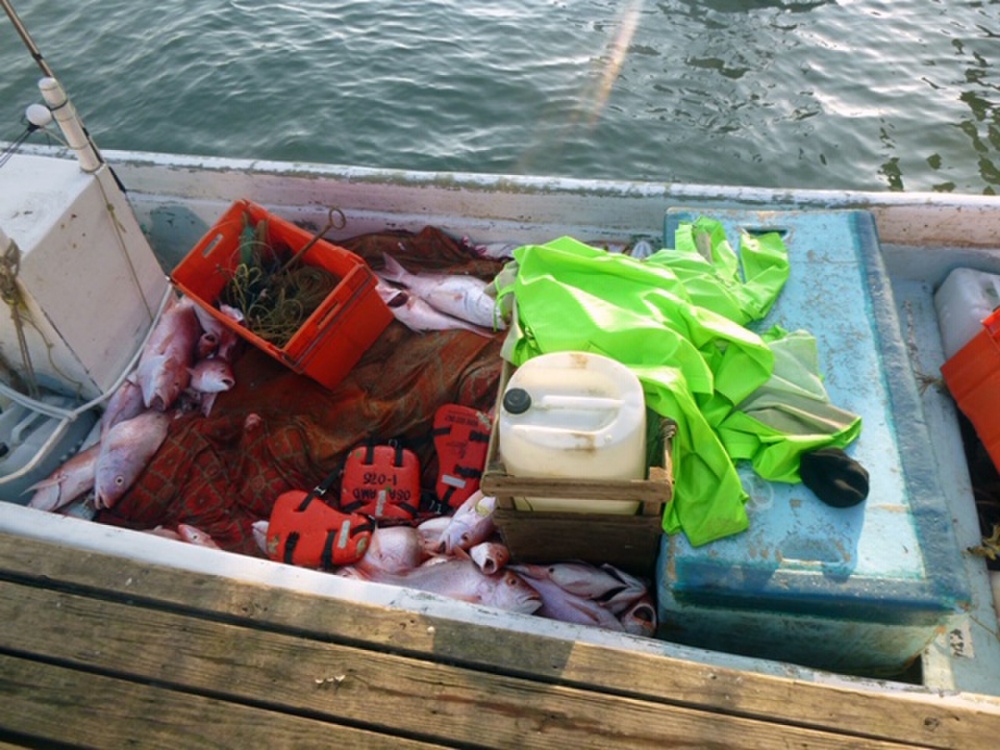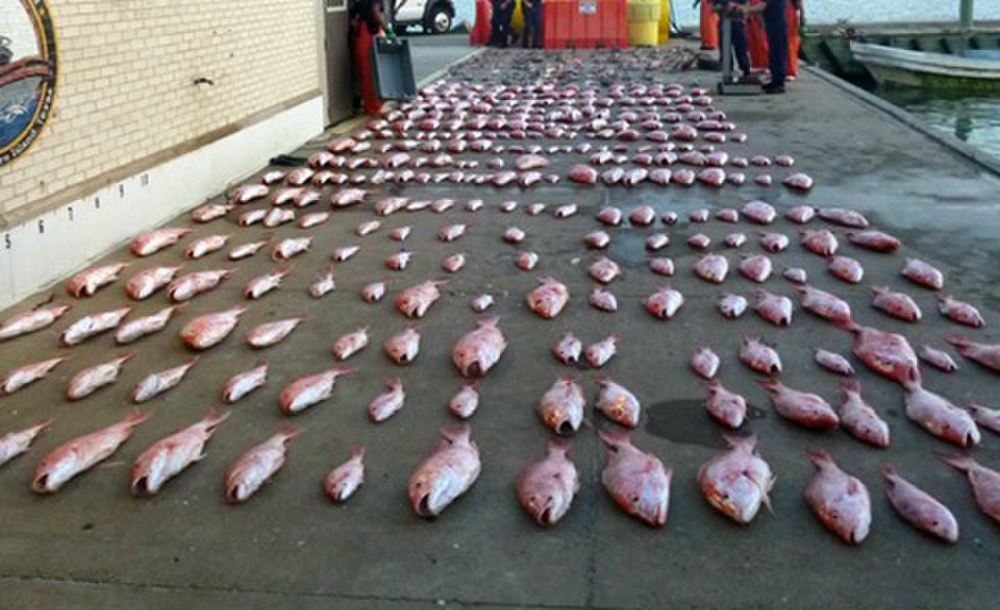USCG Interdicts Record Number of Illegal Fishing Boats
U.S. Coast Guard law enforcement crews have interdicted a record-breaking number of lanchas operating illegally in the U.S. Gulf of Mexico over the past 12 months, according to USCG Sector Corpus Christi.
A lancha is a small fishing boat used by Mexican fishermen, typically 20-30 feet long with a slender profile. They usually have one outboard motor, and they are capable of traveling at speeds exceeding 25 knots. Lanchas frequently enter the United States EEZ near the U.S.-Mexico border in the Gulf of Mexico, often with the intent to smuggle people or drugs or to fish illegally in U.S. waters.

Red snapper aboard a lancha caught operating in the U.S. EEZ (USCG)

Red snapper recovered from three lanchas caught operating in the U.S. EEZ (USCG)

that matters most
Get the latest maritime news delivered to your inbox daily.
Since October 2018, Coast Guard assets have detected a total of 175 lanchas, intercepted 138 and interdicted 74 - up from 61 interdictions during the same period the prior year. Since the first recorded lancha interdiction in the late 1980s, the Coast Guard has seen a significant uptick in detection of the vessels, particularly in the past two years. The Coast Guard has deployed multiple layers of assets to carry out fishing boat detection and interdiction, including aircraft, small boats and cutters, along with improved detection technology. This has resulted in a drastic increase in lancha interdictions, according to the agency.
"Working with our [regional] partners, we will continue to apply maximum pressure along the Maritime Boundary Line in order to deter this illicit activity, preserve our natural resources and uphold U.S. sovereignty,” said Lt. Kurtis Mees, Coast Guard Station South Padre Island commanding officer. “I couldn't be more proud of my crew’s efforts and their steadfast dedication towards this mission. This problem has persisted now in South Texas for 30-plus years and we are committed to seeing an end to it."
